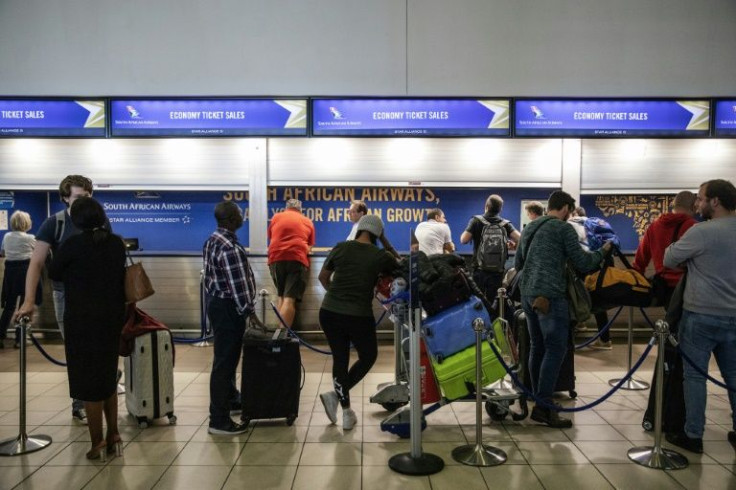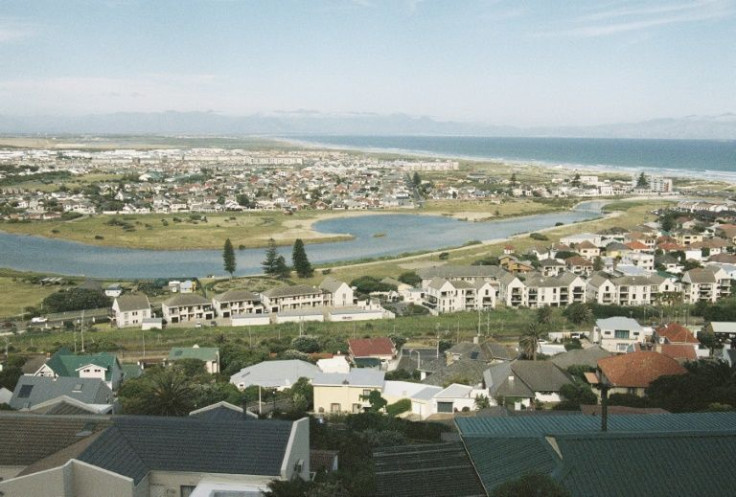S.Africa Tourism In Turmoil After Variant Sparks Travel Bans
Helpless and furious, South African tour operators are flooded with cancellations as countries follow Britain's decision to ban travel from the region over the discovery of a new coronavirus variant.
"This is a knee-jerk reaction but with such a strong snowball effect," said Richard de la Rey of Dark Giraffe Marketing, which organises safaris and beach holidays in Mozambique, Tanzania and South Africa.
"No one knows anything about this variant at all and they just assume the worst," he huffed.
Hopes for a prolific post-pandemic tourist season were dashed in South Africa on Thursday, when scientists said they had detected a new Covid-19 variant with a large number of mutations.
The variant, which goes by the scientific label B.1.1.529, is blamed for a recent surge in infections in Africa's worst-hit country.
Just hours after it was announced, Britain said all flights from South Africa and its neighbours Namibia, Lesotho, Eswatini, Zimbabwe and Botswana would be prohibited from Friday.

A slew of countries are following suit, including France, Germany, Italy and Singapore.
But the World Health Organization cautioned against imposing travel restrictions, saying it would take weeks to understand the implications of the newly discovered strain.
"Finally, we were starting to see the traction of recovery," said Shelly Cox, who organises sustainable trips to Victoria Falls, one of Africa's most coveted tourist attractions on the border between Zambia and Zimbabwe.
High-paying foreign tourists were just starting to return to South Africa, renowned for its wildlife and natural vistas, after the country was shut off from the rest of the world for most of 2020.
Countries then blacklisted South Africa after another variant was found in December -- a crippling blow as tourism directly accounts for three percent of the nation's economy and provided more than 700,000 jobs before the pandemic.
Britain only removed it from its dreaded coronavirus "red list" in October this year, before which travellers were forced to undergo an expensive hotel quarantine upon return to the UK.

Maxine Mackintosh, a 28-year-old genomics researcher, landed in Johannesburg on Thursday and was scheduled to travel around South Africa for 10 days.
By early afternoon Friday, she was airborne on her way back to the UK to avoid have to quarantine.
"We were going to do fun touristy things... go to vineyards, climb up mountains, go surfing... I feel pretty frustrated because this is my first trip since the pandemic and I had been really looking forward to it," said Mackintosh.
"As a safari operator we had seen a really nice uptick in October," Andre Van Kets, co-founder of Discover Africa Group, told AFP.
"Booking rates shot through the roof compared to the pandemic era and we were really optimistic... so to have the hand brake pulled up so suddenly is very significant," he added.
International visitors represent 90 percent of the company's clients. Most come from the UK and the United States, and Van Kets said he dreaded a similar announcement from the White House.
Travel agencies were meanwhile swamped with holidaymakers seeking to change their bookings.
"We are mostly dealing with cancellations from people who cannot fly," said Morongoe Khoboko, who works for Corporate Traveller Evolution in Johannesburg.
"It's been a crazy morning," she exclaimed.
Many feel South Africa's blacklisting in unjust. They note that the country has stricter coronavirus rules than many Western nations, including mandatory face masks in public and caps on gatherings.
"I am a real big rugby fan and I see stadiums full with 50,000 people... but South Africa is still the problem?" asked de la Rey.
Vaccine uptake has been low, however, with just around 35 percent of the population fully jabbed after a slow campaign start and widespread hesitancy.
Governments "panic and I get that to a certain extent, but there has got to be a better way," said de la Rey.
"It seems we, and the African continent in general, are the scapegoat."
© Copyright AFP 2024. All rights reserved.











